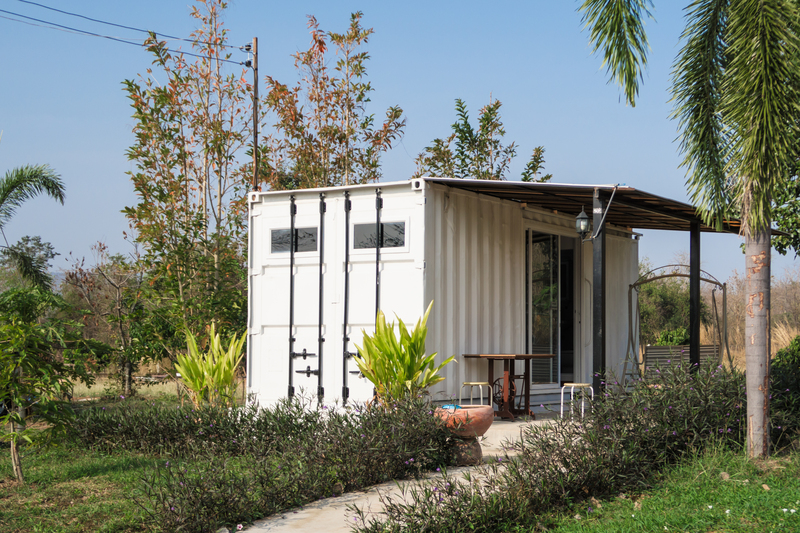In the contemporary pursuit of sustainability, the transformation of wood waste into valuable resources is increasingly gaining attention. The economic and environmental benefits derived from innovative waste management strategies cannot be overlooked. From manufacturing byproducts to energy production, wood waste is a significant asset when processed effectively.
Understanding Wood Waste and Its Impact
Wood waste refers to the discarded wood materials that arise from various processes such as construction, logging, and manufacturing. It's crucial to manage this waste efficiently due to its widespread availability and potential environmental effects.
Sources of Wood Waste
- Construction & Demolition: Buildings being constructed or demolished often yield a significant quantity of wood waste, including planks, beams, and sawdust.
- Furniture Manufacturing: Excessive trim, shavings, and sawdust from furniture production contribute to wood waste.
- Forestry Operations: Logging generates considerable residue like branches and undergrowth that are often left unused.
Environmental Impacts
The improper disposal and management of wood waste can lead to several environmental concerns:
- Deforestation: Inefficient use exacerbates the demand for new wood, accelerating deforestation.
- Landfill Overload: Wood waste occupies substantial landfill space, contributing to pollution and resource depletion.
- Greenhouse Gas Emissions: Decomposing wood in landfills produces methane, a potent greenhouse gas.

Strategies for Wood Waste Transformation
Adopting sustainable methodologies to convert wood waste into valuable resources is essential for fostering an eco-friendly future.
Recycling and Reuse
Recycling offers a gamut of benefits by turning wood waste into reusable and energy-efficient products.
- Particleboard Production: Used wood and sawdust can be compressed into particleboard, applied extensively in furniture-making and interior decoration.
- Mulching: Wood chips and shavings serve as effective mulch, enhancing soil quality and preventing erosion.
- Composting: Decomposed wood waste contributes to nutrient-rich compost, vital for agriculture.
Energy Production
Wood waste can be a significant contributor to renewable energy sources, bolstering global energy demands.
- Biomass Energy: Through combustion, wood waste generates biomass energy, reducing reliance on fossil fuels.
- Biofuel Development: Conversion of wood waste into biofuels like ethanol presents a sustainable alternative to conventional fuels.
Innovative Technologies and Approaches
The advancement of technology has paved the way for efficient and innovative approaches in transforming wood waste.
- Pyrolysis: Thermochemical decomposition of wood waste in the absence of oxygen results in valuable charcoal and syngas.
- Gasification: Conversion of wood residues into gas can be used for generating electricity or running vehicles.
- 3D Printing: Transforming sawdust and wood fibers into materials for 3D printing opens new dimensions for the recycling industry.

Benefits of Transforming Wood Waste
Transforming wood waste into valuable resources offers multifaceted benefits across economic, environmental, and social domains.
Economic Advantages
Recycled wood products offer cost-efficiency and create new market opportunities:
- Cost Reduction: Recycled wood is often cheaper than new wood, reducing the overall cost in manufacturing and construction.
- Job Creation: The expansion of recycling facilities and bioenergy plants generates employment opportunities.
Environmental Gains
The environmental advantages are vast and vital in combating climate change:
- Conservation of Forests: Efficient use of recycled materials decreases the demand for new wood, aiding in forest preservation.
- Pollution Reduction: Minimizing landfill wood waste helps in lowering pollution and greenhouse emissions.
Social Impacts
Sustainable wood waste management also boosts public health and community well-being:
- Improved Air Quality: Reducing landfill waste and emissions contributes to cleaner air and a healthier environment.
- Community Engagement: Awareness campaigns and projects foster community involvement in sustainability efforts.
Conclusion: Embracing a Sustainable Future
The potential of transforming wood waste into valuable resources is boundless. By adopting sustainable practices like recycling, energy production, and innovative technologies, we can mitigate environmental impacts, enhance economic growth, and promote societal benefits. Investing in these strategies will pave the way for a healthier and more sustainable future, making the adage "waste not, want not" truly meaningful.
With concerted efforts from industries, governments, and communities, the vision of achieving a circular economy can be realized, rendering wood waste not as a burden, but rather as a valuable resource for future generations.